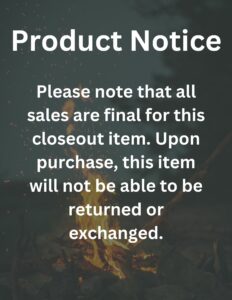
Family Talk: Boys in the Crossfire
In this edition of Family Talk, Dr. Tim Clinton talks with Trail Life CEO, Mark Hancock about the important role of Trail Life USA is playing as they equip churches to engage men to use outdoor adventure as a tool to grow young men who have a healthy understanding of biblical manhood and who are prepared to be leaders of character in their home, their community, and their country.
Partial Transcript
Dr. Clinton: Many of you know this. Masculinity is under attack in our society. Dr. Dobson’s so concerned about it. I think the progressives in America would tell you that it’s threatening or toxic to be a man’s man.
Unfortunately, this assault on manliness also degrades dads and it undermines the influence that we’re to have on our boys. With me, to discuss this challenging trend, is Mark Hancock. He, by the way, is the CEO of Trail Life USA. This is an organization that is a Christian alternative for boys and young men wanting to be involved in outdoor activities.
Dr. Clinton: Let’s talk about Trail Life, the organization. What does it do? Why do you exist?
Mark Hancock: Trail Life is about five years old. We’re a Christ-centered, boy-focused alternative to the Boy Scouts. And we really started out of some membership standard changes the Boy Scouts began to make about five years ago, and we realized that Christian families and churches were going to need an organization that was interested in developing character and leadership abilities in boys, but also needed a Christ-centered focus.
And we started on our first day, miraculously, with 10,000 members, and since then, in the last five years, we’ve grown to over 800 churches with 28,000 members and we’re in 49 states.
Dr. Clinton: That’s amazing. That’s miraculous.
Mark Hancock: Yeah, it really has been remarkable.
Dr. Clinton: And you have, like, a set curriculum? Things that churches can do with these boys?
Mark Hancock: We start from kindergarten, we go through twelfth grade and it’s an outdoor-oriented program. Our Troops are organized in patrols. So, we have our Woodlands Trail Patrols, or kindergarten through fifth grade. And then, we have sixth through eighth-grade Navigators. And then, we have high school age Adventurers.
And they do the things that you would think are typically associated with scouting, except the big deal is that we are specifically, unapologetically Christ-centered and we are also boy-focused.
As you know, over the last couple of years, that Boy Scouts, in part of changing their membership standards, they now accept girls. Now, we love girls. We think girls are amazing. But we think that boys and girls need their own programs that are specific to their abilities and their strengths and talents.
Dr. Clinton: You know, I have some fond memories growing up and being in those kinds of groups. Learning how to tie knots to camping out, having fires, getting out in the woods. Those are some great days.
Mark Hancock: They really are. And when you get outdoors with the boys, especially in today’s environment with the electronics and the digital age that we live in, you get the boys outdoors and they’re really exposed to something new. And the father can actually have the opportunity to mentor his son and teach his son things that he doesn’t know. So, it’s a great opportunity for dads and sons, and also for boys who don’t have dads.
In our organization, we have 8,000 volunteer leaders and they’re background checked, child safety youth protection trained, they have personal references in order to be part of the organization. So, we have a lot of men who are concerned about the next generation of boys and about them missing the opportunity for character and leadership growth. And so, they’ll join a troop as a leader and they’ll help to mentor these boys.
Dr. Clinton: (When boys and men are outdoors) There’s a chemistry and there’s a dynamic that begins to take place. We like to each year make our way up into Pennsylvania as a family and a group of us. And we get outside and we go hunting together. But we go and we stay a few days at the camp.
And what happens at that camp during those couple of days, especially … like, my son, Zack, growing up there. He has such fond memories of conversations that took place around a fire, getting out and working with their hands, developing strategies about how we’re going to approach different situations. From riding four wheelers to, I mean, getting in the “crick” is what we call it, not creek, but the “crick” up in Pennsylvania.
Mark Hancock: Yeah, absolutely.
Dr. Clinton: That’s what you’re trying to recreate?
Mark Hancock: Yes. Outdoor adventure provides a great opportunity for learning the type of character lessons and leadership lessons that they’re not getting anywhere else. Where else in our society do boys get to lead other boys? You just don’t see that.
Dr. Clinton: Mark, boys have kind of lost their way. Some people call it Lost Boy Syndrome. And some relate it back to this epidemic of fatherlessness. Talk to us about the significance of dad from where you sit when you see these boys. A lot of those boys who come don’t have a dad.
Mark Hancock: No, they don’t. You can look at a boy who’s faltering and you can attribute it to a lot of different things. But so many times we get to witness a boy who’s suddenly succeeding and it’s because a man has entered that boy’s life and taking that father-like role.
I’m thinking about a gentleman in Texas who’s a Troop master of a Trail Life USA troop, and I went out to visit that Troop and he pointed out a young man. He said, “Do you see that boy over there?” I said, “Yeah.” He says, “He doesn’t have a father. And see that man over there?” I said, “Yeah.” He said, “That man is assigned to him and he makes sure he has what he needs when he comes to his meetings, that he has enough money to afford the trips, that he has a backpack, that he has his uniform, that he has his handbook, that he has everything that he needs in order to be successful.”
And then, he went on to point out two or three other boys and told me exactly the same story. I said, “Boy, you are an amazing man. Tell me about this.” He says, “Well, when I was nine years old, my father died. And there was a youth organization and the men in that organization started ministering to me and poured into my life. And I recognized that I needed to do that for other boys.”
So, you can talk about the lack and we can look at boys failing, but when you see boys begin to succeed because of a role the man takes in their life, that really accentuates the fact that that role is so important. And of course, you know the statistics of when there’s not a father present in the house what happens with drug abuse, the suicide rate, pregnancy rate. All those just soar when there’s not a father present.
So, in Trail Life USA, if there’s not a father, we try to provide a father-like.
Dr. Clinton: This male influence piece is a real debate. Why is male influence important to you? And I want to talk about – people associate it with pretty much abusive, distant, buffoonery, basically, when they talk about men. But that’s not what we’re talking about. And for them to broad brush that and to absolutely dismiss the influence of a man in a son’s life, in a boy’s life.
Mark, what is it that’s driving you? And maybe you can talk to us about what you think masculinity is, what biblically manhood is versus what people are trying to broad brush … the APA, the American Psychological Association, came out with a statement on toxic masculinity, too. It’s like, what in the world? You can be anything but a man.
Mark Hancock: Yeah, it’s almost as if our society’s wanting to dismiss everything good that men brought to society. But when you look at our society, when you look at specifically our country, it took winning, capable, confident men to bring us where we are. And we’re not about, anymore, growing winning, capable, confident boys. We’re giving them such a confusing message. So, it’s critical, and this is the answer to your question, it’s critical that we provide models of proper biblical masculinity that recognizes the value of every person, male or female, that recognizes that there’s a lot more in raising young men who are the type of men who will stand in front of a woman to protect her, rather than chase her down and do harm to her.
And we seem to deal with boyhood as if it’s some sort of social disease that needs to be eradicated, rather than looking at those boys and saying, “Okay. That risk and competition that that boy desires, we’ve got to find a way for him to work that out and to be a productive member of his community.” That he’s willing to take risks for the good of another person. Not to take risks just to do his own personal gain.
So, when we look at the biblical model of Jesus, we have to go back to say, “This is the kind of young men that we need to pour into and create,” and they need models of other godly men to lead them.
This young man in North Carolina was in a terrible situation with his family. Suddenly, his father was outside of the household. A single mom had to raise these kids, and he was kind of brought in by an area Troop and they took him on a long backpacking trip. The first day, he thought he was going to die. The second day, he was sure he was going to die. The third day, he saw the peak. The fourth day, he was almost there. And the fifth day, he stood on it.
And he went home to his mom and he said, “Mom, that was really hard. The hardest thing I ever did. But I did it.” And that’s pure gold to that mom, who now says, “You’re encountering really difficult things in your life in other ways, but you know what? Don’t quit. Hang in there. You’re going to get there.”
So, boys have to be exposed to that sort of risk, that kind of competition, that kind of adventure to find out who it is that they are, to really be challenged. And we snowplow the roads for them a lot in today’s society. Helicopter parenting and everything else. But boys need an opportunity to challenge themselves to do something they didn’t think that they could do and be successful at it.
Dr. Clinton: I wanted to ask you about connectivity here for a moment, getting emotionally close with our kids. Because I know that you have a real burden, and that’s why you’ve put together Trail Life and you want to see our kids go in a different direction than society’s spinning them. This digital world, these kids living online, they’re spending ridiculous numbers of hours looking at what I would call are screens or glass. Speak to the parent, to the dad out there who feels disconnected with his son. “He’s different than me. It’s not there for us.” What do they do?
Mark Hancock: Well, I can tell you that, in a male-focused environment, with a dad who’s around other dads watching them, and other sons, that’s a great laboratory to find out how you can re-engage or perhaps engage for the first time with your son, to find out how to interact. Because like I said earlier, it’s a level playing field. You’re in the outdoors. It’s trees and rocks and the sky. So, you’re both on level ground.
It’s the best place for fathers to connect with sons. And then, of course, when the sons bed down at night and you’ve got these dads sitting around the fire, what are they talking about? They’re talking about how they saw another man speak to his son and said, “I saw that interaction with your son. Tell me how you built that kind of relationship with your son.”
So, the best-kept secret of Trail Life is the impact it’s having on fathers and men who are finding brotherhood in the outdoors. Even though they think they’re there to help the boys God manages to build up these men, too, and make them better husbands and fathers.
Dr. Clinton: And what about men wanting to find a place? We do a men’s event, and what I’m seeing is there’s a stirring among the hearts of men. They’re tired of getting beat down by everybody, thinking that they’re nothing but porn addicts, bad husbands, horrible fathers, people who don’t care about God and more…I’m seeing them wanting to engage. They want to work with their hands, they want to do something, get engaged in mentoring ministry and more. Can they get involved in this kind of project too?
Mark Hancock: If they would step out and share with a young man, whether it’s through Trail Life or somewhere else, take the time to pour into a young man’s life…Like I said, that’s the best kept secret about Trail Life, is the ministry to men who are suddenly finding themselves in a place where what they have to give is appreciated and valued and they’re making a difference. It’s powerful stuff.
Dr. Clinton: Sitting around the fire and having fun. Skipping rocks across the pond – fishing, laughing, playing tag. Just doing nothing. It reminds me of that old song, “She thinks we’re just fishing.” You know that old line in that song? We’re not just fishing. There’s something that’s taking place.
Mark Hancock: Something deeper going on.
Dr. Clinton: Yeah. Mark, thanks for your ministry. Thanks for Trail Life. God’s added blessings on that special ministering call in your life. Thanks for joining us.
Mark Hancock: Thank you, Tim.
Roger Marsh: Well, this is Roger Marsh and you’ve been listening to Dr. Tim Clinton’s conversation with Mark Hancock today on Dr. James Dobson’s Family Talk. Parents everywhere should be gravely concerned about the dangerous messages society is sending our boys. Christians who raise their sons on biblical truth will produce God-fearing men that this culture desperately needs.
Stand with us and fight for righteousness in culture.
https://www.drjamesdobson.org/Broadcasts/Broadcast?i=f27e0006-7c14-4402-809e-888c19d65a57




